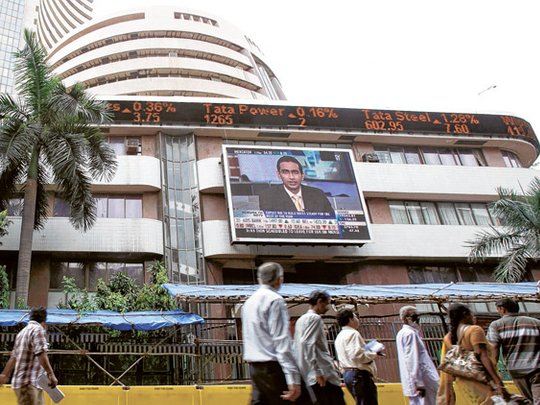
Abu Dhabi: The Indian government's decision to allow qualified foreign investors (QFIs) to directly invest in the Indian equity market is meant to "widen the class of investors, attract more foreign funds, reduce market volatility and deepen the Indian capital market," according to an Indian government statement posted on its website.
The Securities and Exchange Board of India (Sebi) and the Reserve Bank of India (RBI) are expected to issue relevant circulars to put the scheme into operation by January 15, it added.
"QFIs have been already permitted to have direct access to Indian mutual funds schemes pursuant to the Budget announcement 2011-12. Today's decision is a next logical step in the direction," said the government.
In the present arrangement relating to foreign portfolio investments, only Foreign Institutional Investors/sub-accounts and non-resident Indians (NRIs) are allowed to directly invest in Indian equity market.
"The QFIs shall include individuals, groups or associations, resident in a foreign country which is compliant with FATF [Financial Action Task Force] and that is a signatory to IOSCO's multilateral MoU. QFIs do not include FII [Foreign Institutional Investor]/sub-accounts," the government added.
Under the new guidelines, the Reserve Bank of India would grant general permission to QFIs for investment under Portfolio Investment Scheme (PIS) route similar to foreign institutional investors. The individual and aggregate investment limit for QFIs will be 5 per cent and 10 per cent respectively of the paid up capital of an Indian company. These limits shall be over and above the FII and NRI investment ceilings prescribed under the PIS route for foreign investment in India.
The QFIs will be allowed to invest through SEBI registered Qualified Depository Participant (DP). A QFI will open only one demat account and a trading account with any of the qualified DP. A demat account number is quoted for all transactions to enable electronic settlements of trades to take place. The QFI shall make purchase and sale of equities through that DP only. DP shall ensure that QFIs meet all KYC (know your customer) and other regulatory requirements, as per the relevant regulations issued by Sebi from time to time.
"QFIs will remit money through normal banking channel in any permitted currency (freely convertible) directly to the single rupee pool bank account of the DP maintained with a designated AD category I bank. Upon receipt of instructions from the QFI, the DP shall carry out the transactions (purchase/sale of equity).
The DP will be responsible for deduction of applicable tax at source out of the redemption proceeds before making redemption payments to QFIs," said the government.
An AD category 1 bank is one of the channels for the conversion of currency notes, coins or travellers' cheques designated in foreign currency into Indian Rupees and vice versa.
Jitendra Gianchandani, chairman of Dubai-based Jitendra Consulting Group told Gulf News the news came as no surprise to him.
"This was expected...after allowing QFIs to invest in the mutual funds in the 2011-12 budget. FIIs withdrew more then what they invested in 2011. In 2010. FIIs invested around $30 billion [Dh110 billion] compared to just a few millions in 2011," said Gianchandani, adding the latest government move means individuals and organisations from 80 countries will be eligible to invest as QFIs.
"If QFIs from DTAA (Double Tax Avoidance Treaty) countries are also offered similar benefits, which were offered to FIIs, it will further improve the foreign inflow in the Indian share market," he added.
Pradeep Unni, Senior Relationship Manager at Dubai-based commodities trading firm Richcomm Global Services DMCC told Gulf News that with the Indian rupee shedding 24 per cent of its value against the dollar last year, inflation is still near double digits, growth is faltering and most importantly the current account deficit si widening.
He said the current move can be considered as a very thought-about move from the Indian Government to partly solve these problems in a single policy change.












